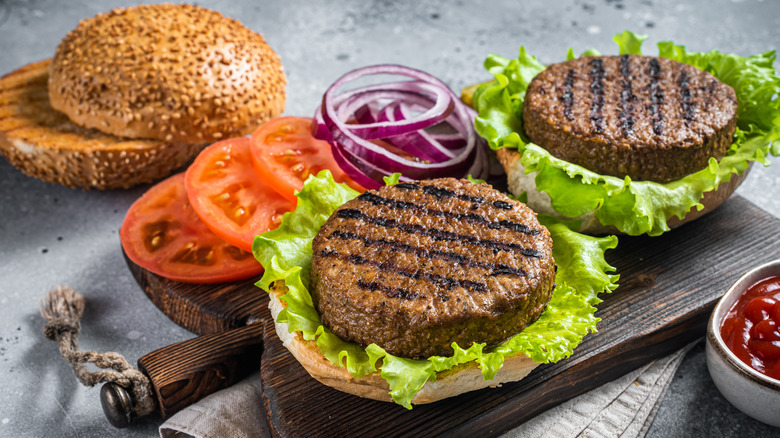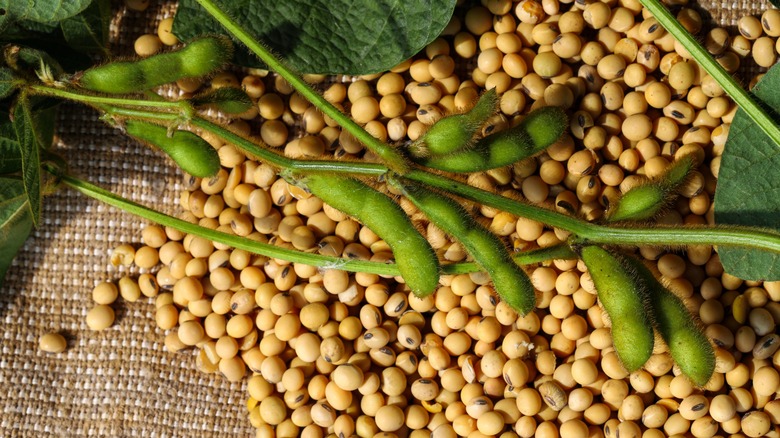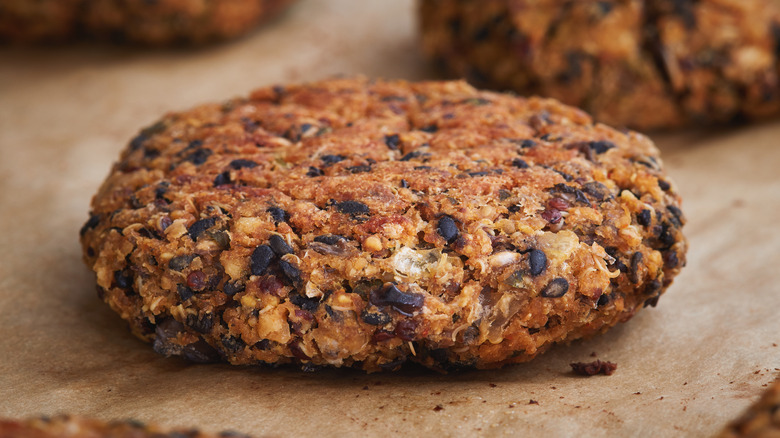Why You May Want To Steer Clear Of Soy Veggie Burgers
With the rising popularity of a plant-based diet, the demand for burger substitutes has led to plenty of meatless products hitting shelves. From peas to mushrooms, just about everything has been turned into a burger! Likely, we'll continue to see more and new variations of meatless burger alternatives. It's forecasted that the demand for them will more than double in the next decade.
Whether you reach for a veggie alternative to place atop your bun for health matters, ethical beliefs, environmental concerns, religious reasons, or doctor's orders, there is one patty you may want to steer clear of: soy-based burger patties. Why? Well, it has more to do with what's in the burger other than soy.
While the ingredients in an animal-based burger are pretty straightforward — typically just meat plus salt — the list of ingredients on a packaged soy veggie burger can look like a science experiment. So we're here to delve into what you need to know about these meatless meals to make informed shopping choices.
Soy veggie burgers are highly processed
All soy products come from soybeans, aka those little steamed green pods you start your meal with at your favorite sushi joint. Tofu is a cake made from beans and soy milk is the beans in a ground form. The soy used in veggie burgers is not typically just mashed soybeans. It is often something called soy isolate/concentrate or textured vegetable/soy protein (TVP/TSP). This comes in the form of a dry powder that has been separated (isolated or concentrated) from the rest of the soybean. In other words, it is a more processed form of soy.
With soy isolate as the protein source for a veggie burger, other ingredients enhance its taste, texture, and appearance. For a soy burger to have a firm texture and eye-pleasing appearance for a soy burger, beets, pomegranates, oils, and more have been added to the patty. However, these additions often lead to positive nutrition effects.
Nutrition misses of soy veggie burgers
When you're attempting to make soy taste as good as char-broiled beef, help is often needed. Typically, this comes in the form of additives and processing. Soy veggie burgers are usually chock-full of sodium. CNN Health points out that the Impossible Burger — made from soy protein concentrate – contains 370 milligrams of sodium. Compared to a beef burger patty, which clocks in around 65 to 75 milligrams, it's not the best option for those watching their sodium intake.
The ultra-processing of the patty also detracts from the natural health benefits of soy. Pre-processed soybeans contain isoflavones, which have been linked to reducing cancer rates in individuals. However, once processed and turned into a patty, the amount of those healthy flavonoids becomes drastically slashed (via Harvard Health).
While the convenience of a premade soy veggie burger is tempting, sticking to plant-based alternatives — such as black beans or sweet potato burgers — might be healthier in the long run. When you see a veggie option on a future menu, don't hesitate to ask what kind of plant-based base the restaurant uses.


